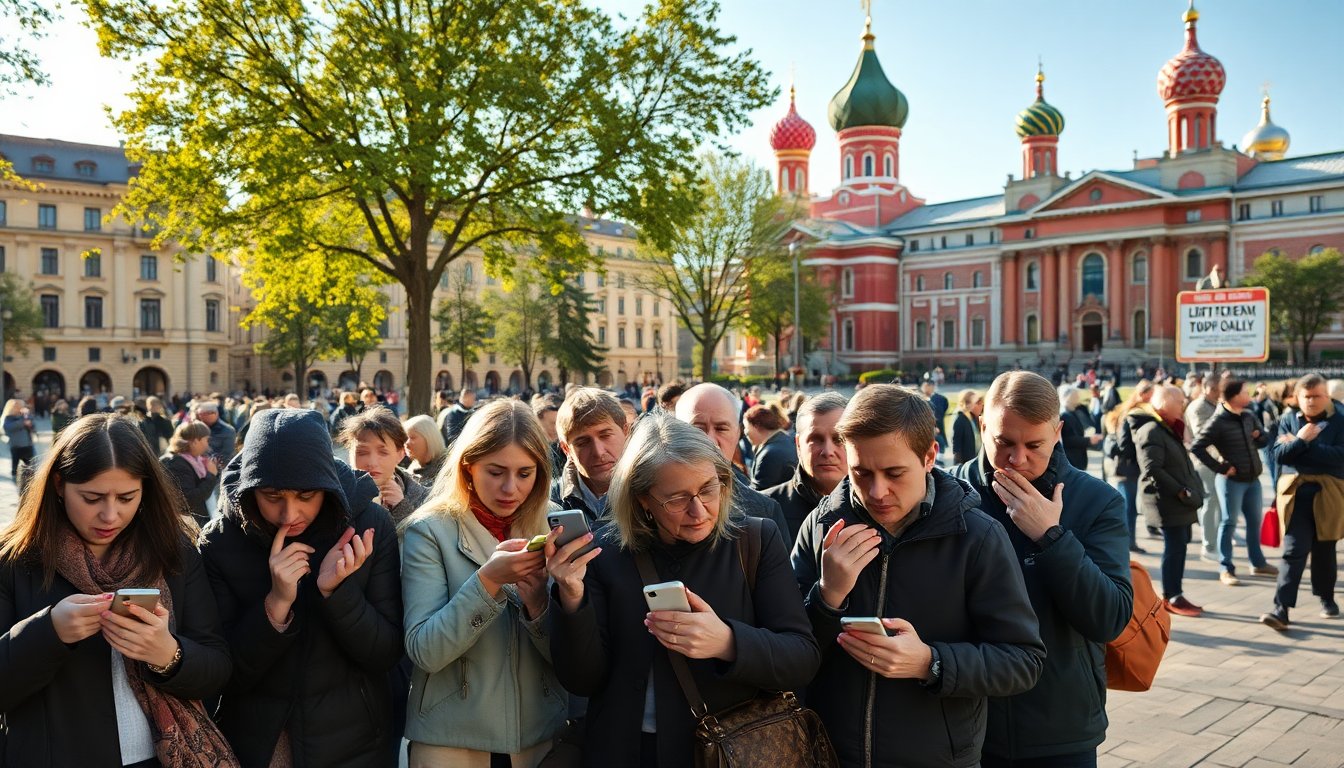Table of Contents
In an effort to address security concerns, Russian telecom operators have initiated a controversial 24-hour blackout on mobile internet services for foreign SIM cards. This measure, referred to as a cooling-off period, aims primarily to reduce drone activity near Russia’s borders. However, the rollout has encountered significant challenges, leaving both tourists and locals struggling with connectivity issues.
The concept of a cooling-off period was proposed in early August 2025 by Russia’s Digital Development Ministry. Minister Maksut Shadayev stated that this restriction was intended to counteract the use of foreign SIM cards in drone operations. The initial plan was to suspend mobile access through these SIM cards for five hours upon entering Russian territory, although the final duration of the blackout was still under review.
Implementation and initial challenges
As the October 6 deadline approached, multiple Belarusian telecom providers warned their customers about potential service disruptions while roaming in Russia. The warning indicated that the blackout would last a full 24 hours and would impact both mobile internet and text messaging services. Reports from various Telegram channels quickly emerged, detailing user complaints about the inability to access mobile internet with foreign SIM cards, including eSIMs, while traditional voice calls and SMS remained functional.
Technical complications
The system’s operation has proven to be fraught with technical difficulties. Some reports suggested that the cooling-off period could inadvertently activate when users crossed regional borders within Russia. According to the monitoring project Na svyazi, if a device was inactive for over three days, mobile internet access would be re-blocked. The timer for the 24-hour blackout would also reset each time the user switched networks, a common occurrence for those roaming.
By mid-October, it became clear that Russian telecom operators were struggling to implement the new restrictions effectively. A report from Kommersant highlighted that many users still found their mobile internet access blocked even after the expiration of the cooling-off period. SMS delivery failures were also widespread, complicating communication for both tourists and Russian citizens.
Impact on tourists and local residents
Among the major telecom providers, only T2 successfully implemented the 24-hour timer; however, their users also reported issues with SMS deliveries. An insider noted that other operators lacked the necessary technical infrastructure to enforce the restriction for just one day, which led to prolonged service interruptions for anyone using a foreign SIM card.
Consequences for bank communication
The disruptions have extended beyond foreign tourists. Local residents relying on bank cards issued abroad have faced difficulties as well. Many have opened international accounts to facilitate payments for online services, but the current restrictions have prevented them from receiving essential text notifications, such as verification codes from their banks.
Tourists navigating the challenges of obtaining a mobile connection in Russia now face an incredibly convoluted process. Foreign visitors must secure a Russian SIM card, which has become increasingly difficult to obtain. The prerequisites include creating a verified account on the government’s public services portal, Gosuslugi, providing a notarized translation of their passport, and obtaining a SNILS, akin to a social security number. They must also submit biometric data and register through a bank, a procedure that can take several days to complete.
Ongoing developments and future outlook
Even after overcoming these hurdles, possessing a Russian SIM card does not guarantee uninterrupted internet access. Since the summer, authorities in various regions have intermittently shut down mobile internet services in response to potential drone threats. During these outages, only select websites from approved whitelists remain accessible, further complicating the situation for both tourists and local users.
In light of these developments, telecom providers have reportedly approached the Digital Development Ministry for a reevaluation of the current regulations, seeking a simplification of the rules governing SIM card access for foreigners. As the situation evolves, it remains to be seen how these new measures will shape the future of mobile connectivity in Russia.


